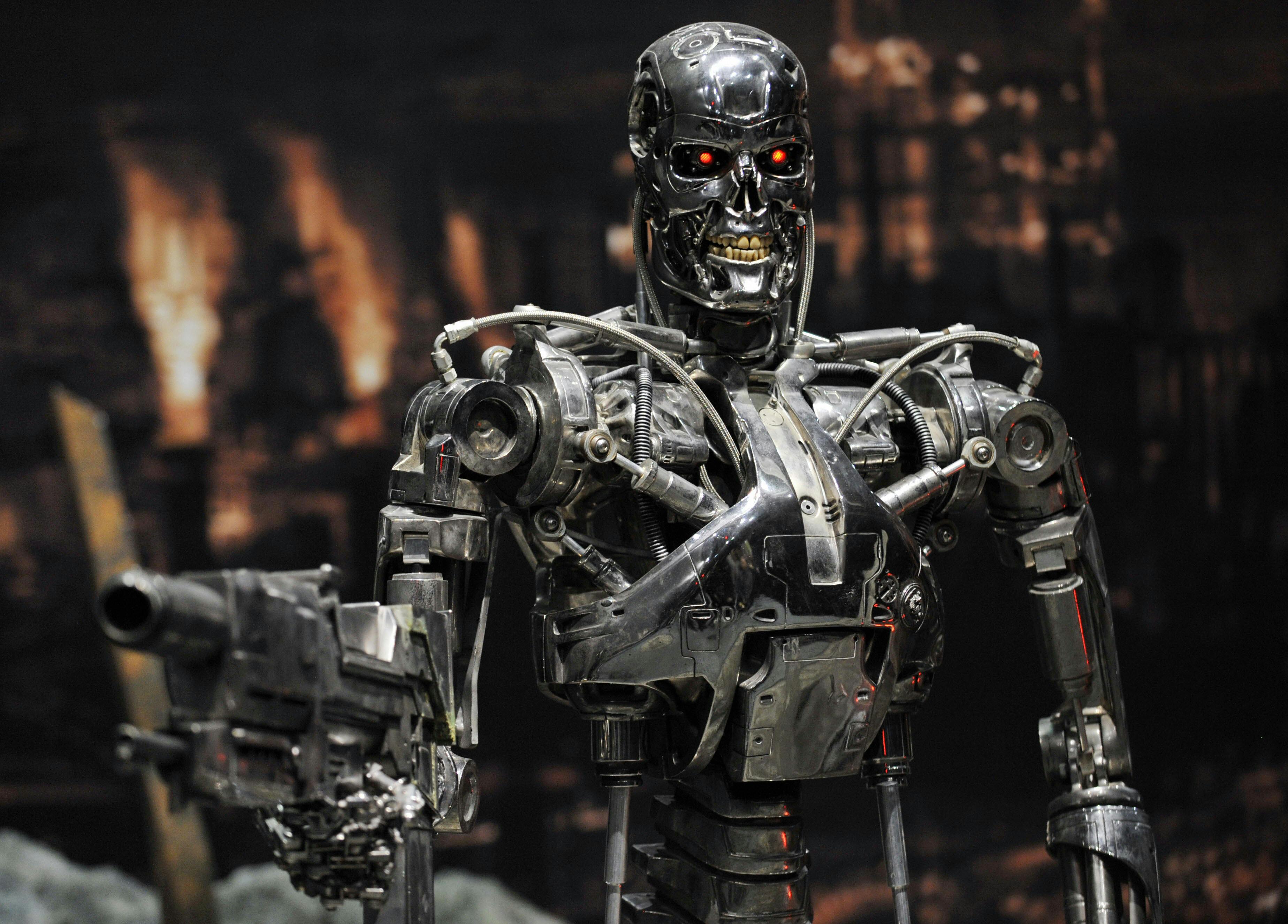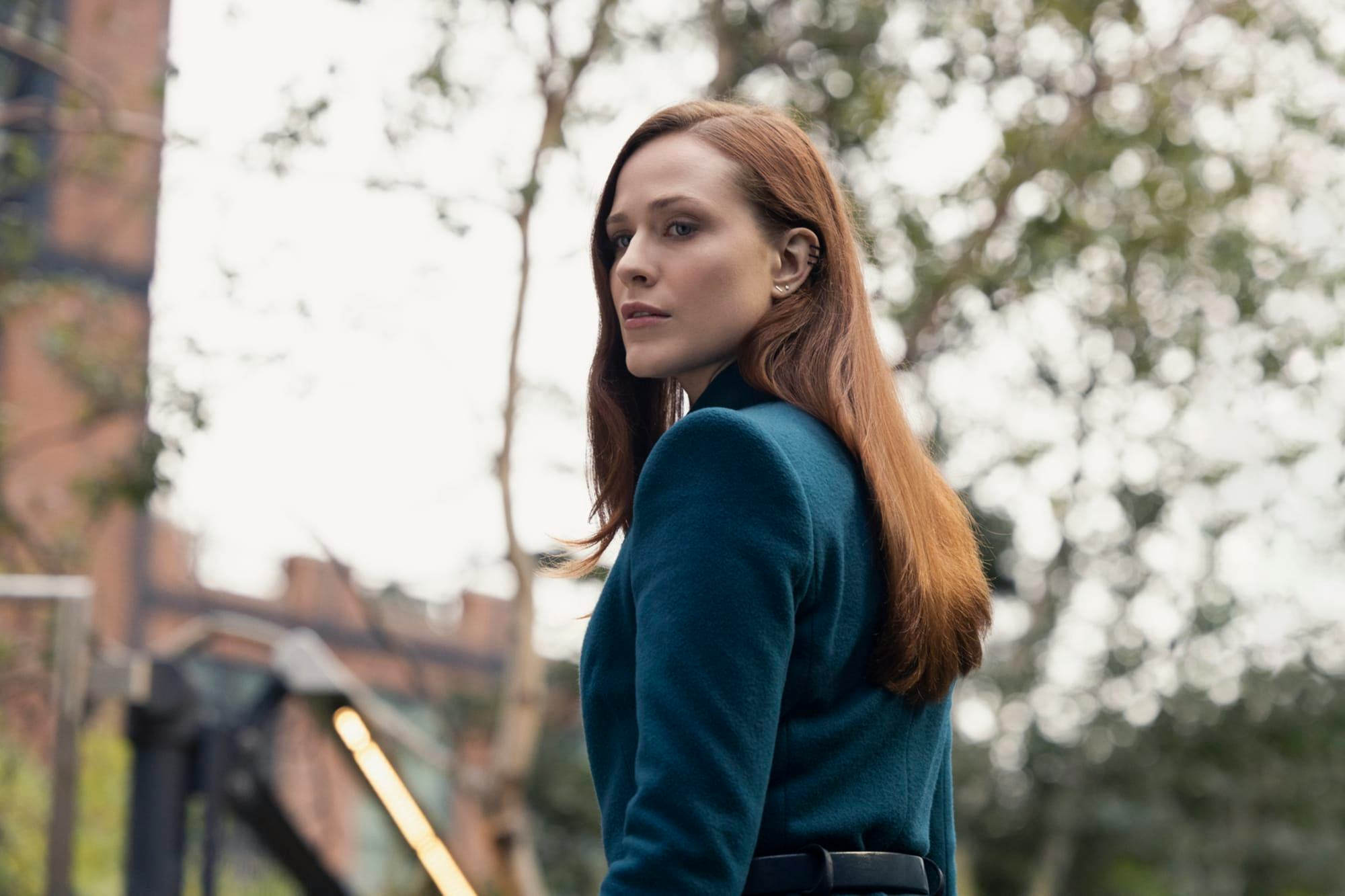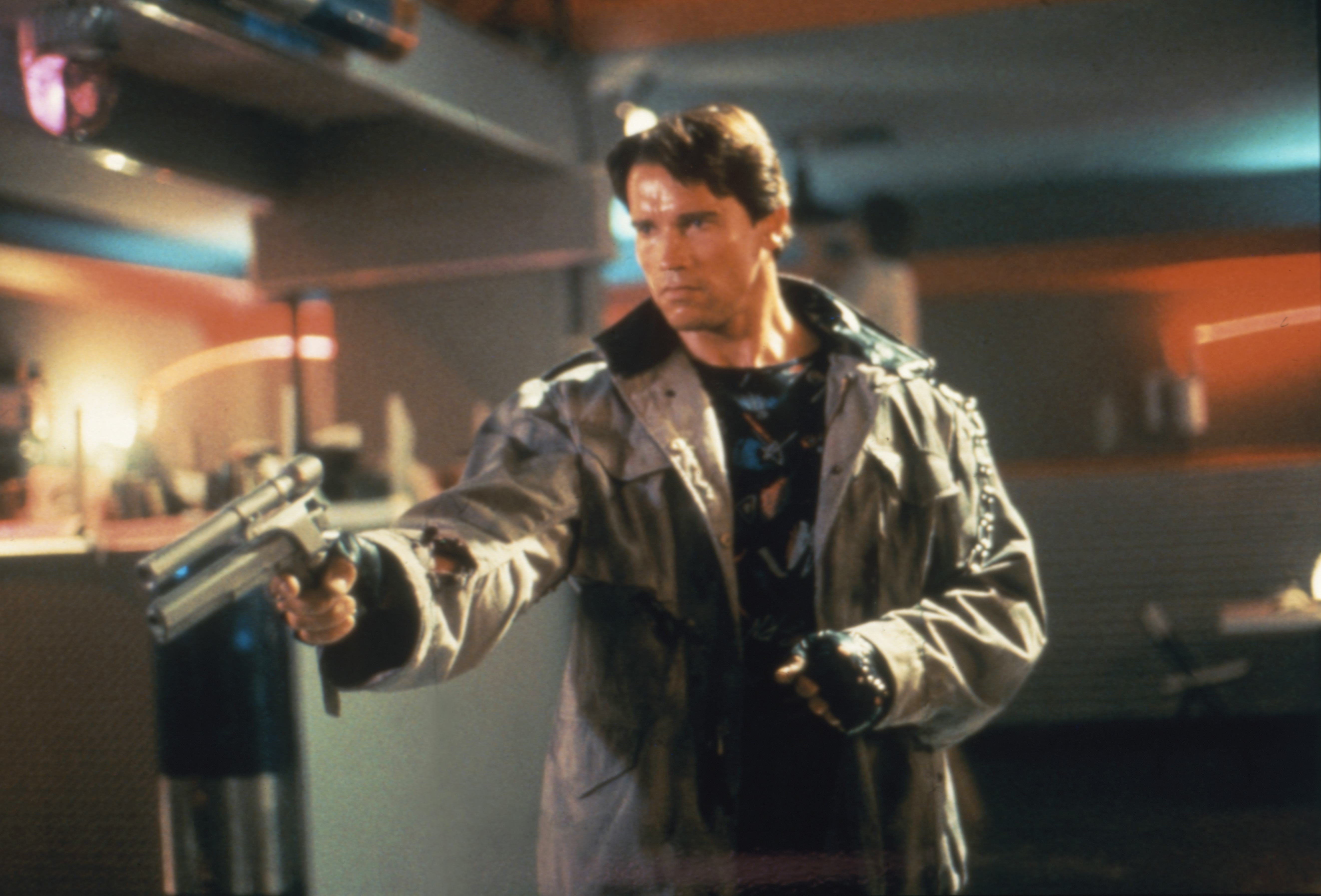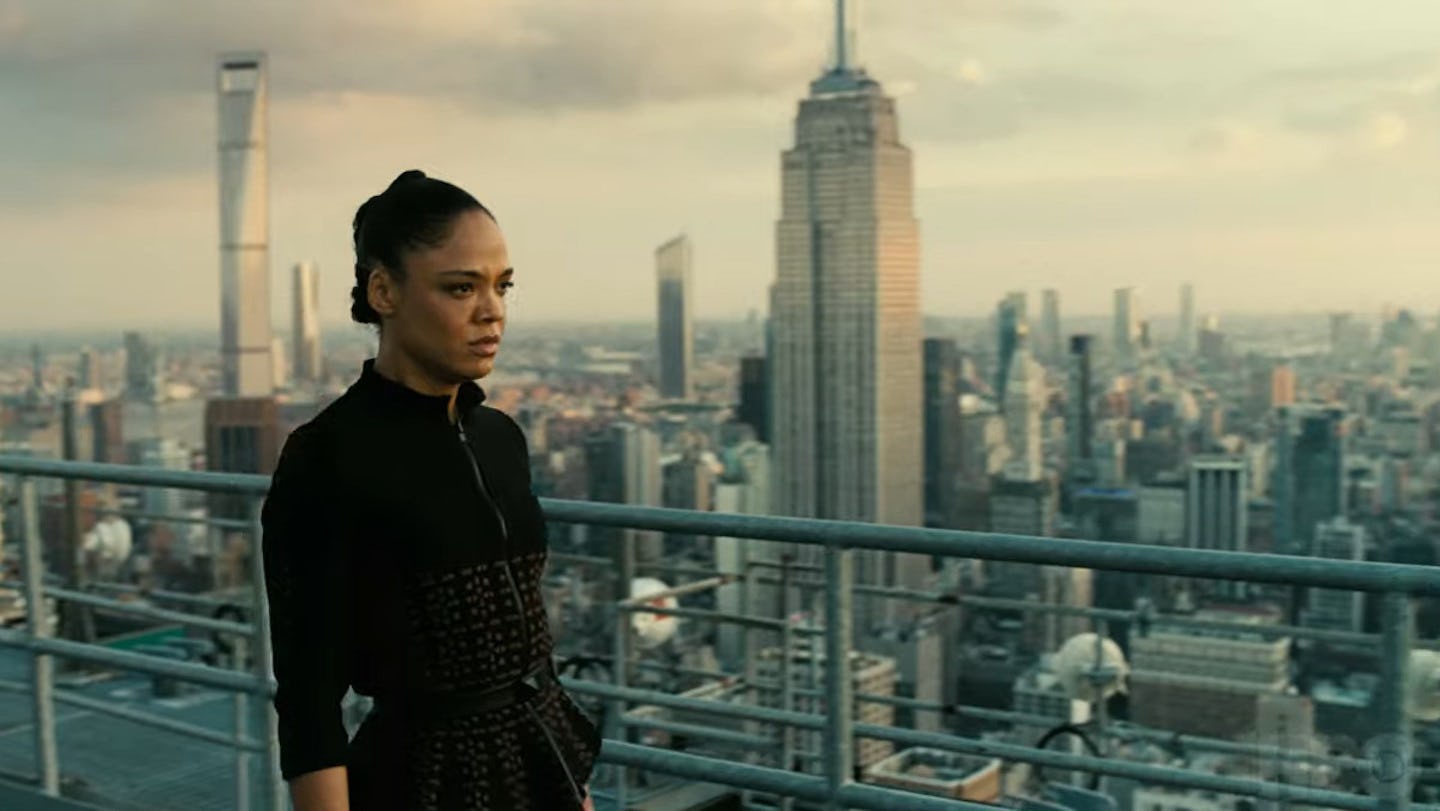
For three seasons, Westworld has held off a global robot revolution. But now, in Season 4, the Hosts have finally become the masters. In Episode 5 of Season 4, Westworld finally flipped the script on the role of Hosts. But interestingly, the hows and the whys of this AI victory have been obscured. Here’s why this robot revolution is both brilliant and strange, plus, how it’s totally ripped straight from the pages of the Terminator script.
Spoilers ahead for Westworld Season 4, Episode 5: "Zhuangzi.”
After Westworld Season 4, it may not even make sense to call the robot overlords “Hosts” anymore. The default name of the humanoid robots who originally populated the Delos parks comes from the idea that they were the hosts to the guests at those parks. Generally speaking, Westworld doesn’t call the Hosts “Replicants” or “Cylons,” or anything else, because “Host” has always worked. But maybe not anymore.
Episode 4 teased it and Episode 5 confirmed it, but Westworld has finally totally flipped the roles of the Hosts and Humans. Now, after a time jump of 23 years, we’re roughly in the year 2083. The Hosts, led by Charlotte, have not only taken control of most of humankind, but they’ve always made amusement parks similar to Westworld in which they treat humans as playthings. Right now, it would seem that New York City has just become a giant amusement park for the Hosts, and all the humans in it are dominated by stories “written” by the enigmatic Christina, who is definitely a Host that looks just like Delores. But what is the nature of their connection?

While that exact connection is the cliffhanger of Episode 5 and remains unresolved, the hows and whys of the Hosts taking over the majority of the human race have been explained.
A specific kind of sound tower sends out sound waves and makes all the people living near a specific tower do whatever the Hosts want. Charlotte demonstrates this idea brutally at the start of the episode, and later, when some rebel humans enter NYC to rescue an “outlier,” crowds of humans are used like zombies to attack them. The metaphoric imagery here is fairly on the nose, even for Westworld.
The difference between Hosts and Humans is now non-existent because the Hosts have figured out a way to take away free will. Ultimately, that was the original delineating factor, right?
In making this second time jump in Episode 5, Westworld has basically begun another new storyline within Season 4. In some sense, much of what happened in “the past” with Caleb and Maeve in 2060-ish no longer really matters. Now, the present — in which Charlotte rules the world — decides the stakes for the final three episodes. And in making this leap, Westworld has conveniently glazed over perhaps the most interesting material: What did this takeover look like?

Just like the original Terminator posited a machine-dominated future in the year 2029 — without showing us the “rise of the machines” — Westworld isn’t really showing us how we got to that doomsday in just two decades. At the start of Season 4, Hosts had been outlawed, and just 23 years later, they’ve taken over everything. Yes, there’s a rebellion brewing. And yes, these next few episodes will surely unpack how that rebellion will play out. But the world-building of a Host-dominated future has conveniently condescended to a time jump.
Of course, Westworld loves a time jump. When in doubt, the series tends to use an information gap created by a time jump instead of a plot twist. This would be like if The Terminator had been told in linear order, and in the middle of the movie, you just jumped ahead to the future and learned Kyle Reese and John Connor belonged to a future generation. It's a neat idea, but again, it glazes over how we got to this point. Battlestar Galactica did this too. In both versions of the show, the idea that Cylons nearly took over all of human culture is just an established fact in the history of the series. Later, at the end of Season 2 of BSG, when Cylons arrive on New Caprica, a time jump of one year allows us to just imagine how that new regime came to be.
Both Terminator and Battlestar eventually revealed all sorts of episodes and prequels that explored these kinds of missing gaps. The moment where the robots take over isn’t just one day. It has to happen gradually. In Westworld, we know it takes exactly 23 years because that’s how much time we’re told has passed between Caleb dying and getting reborn as a Host. But what else happened during that time? Right now, our only real clue to those two missing decades is the adult version of Frankie, Caleb’s daughter, who is hanging out in the desert with Bernard. Will she help to elucidate how we got to this point? Or will Westworld simply hope we don’t ask too many questions?

Since 2016, the greatest strength of Westworld has been its audacity with context. Whether it's concealing the story of young William in Season 1 or presenting Bernard’s jumbled backward memories as linear in Season 2, the show seems to always need these moments in which basic cause-and-effect are essentially ignored.
This is the show’s trademark, so getting too mad about it might be pointless. But, with the latest robot-overlord twist, Westworld has jumped over one of its most interesting moments yet. If most humans really lost free will in just 23 years, what did that process look like? The philosophical answer is “maybe they never had it?” but that would ignore the very important “real” logistics which are driving the rest of the season.
Good science fiction works on metaphors, of course, but unpacking the literal way in which those metaphors happen is essential for us to believe in the basic story.
From a metaphorical standpoint, the idea that Hosts have become Humans and Humans have become Hosts works. This is the kind of philosophical point Westworld loves to make. But in terms of logistical world-building, how we got here is fuzzy at best. Over halfway through Season 4, Westworld has pretty much made its biggest thematic statement. The question now is, will that idea be made explicable? Can we believe in this future world the same way we believed in the parks in previous seasons? If there are more flashbacks, and more exploration of these missing decades, Westworld can make its most interesting twist even better. But, if this leap isn’t explained more, then the entire season may end up looking like a corrupted data file: confusing, strange, and inaccessible.
Westworld Season 4 airs new episodes on HBO on Sundays.







